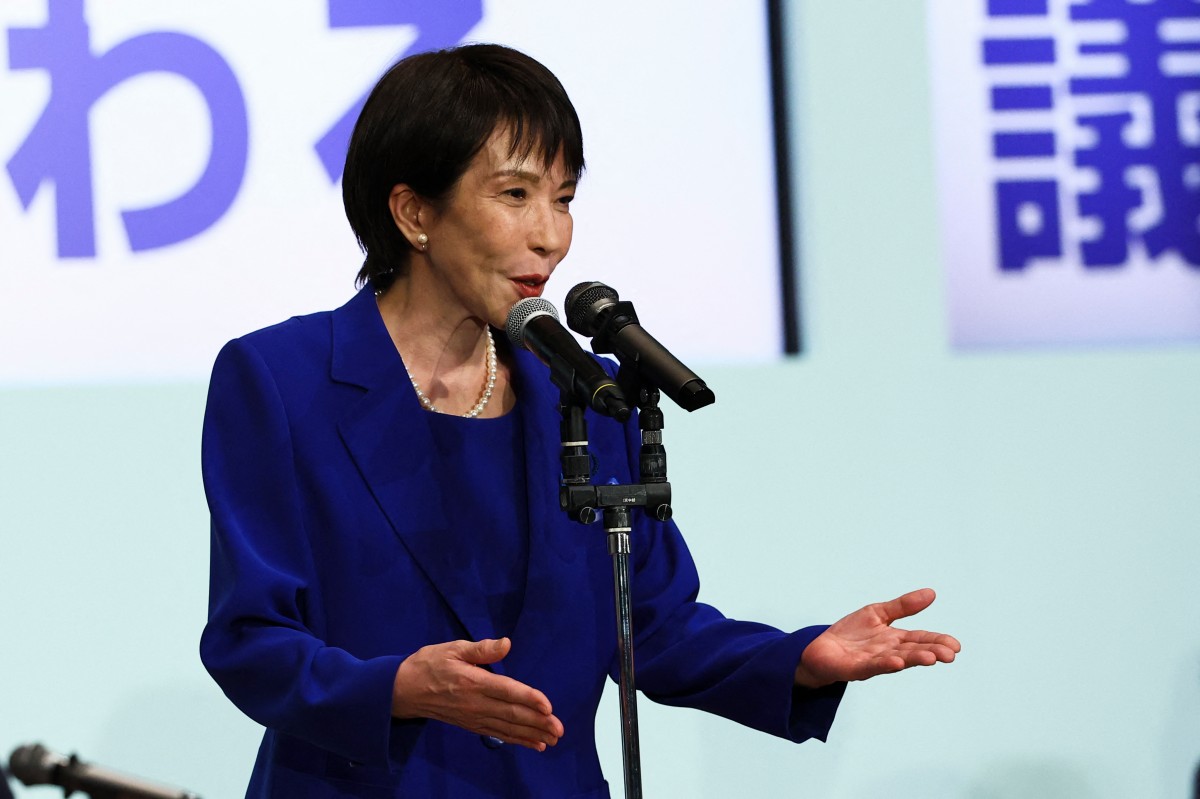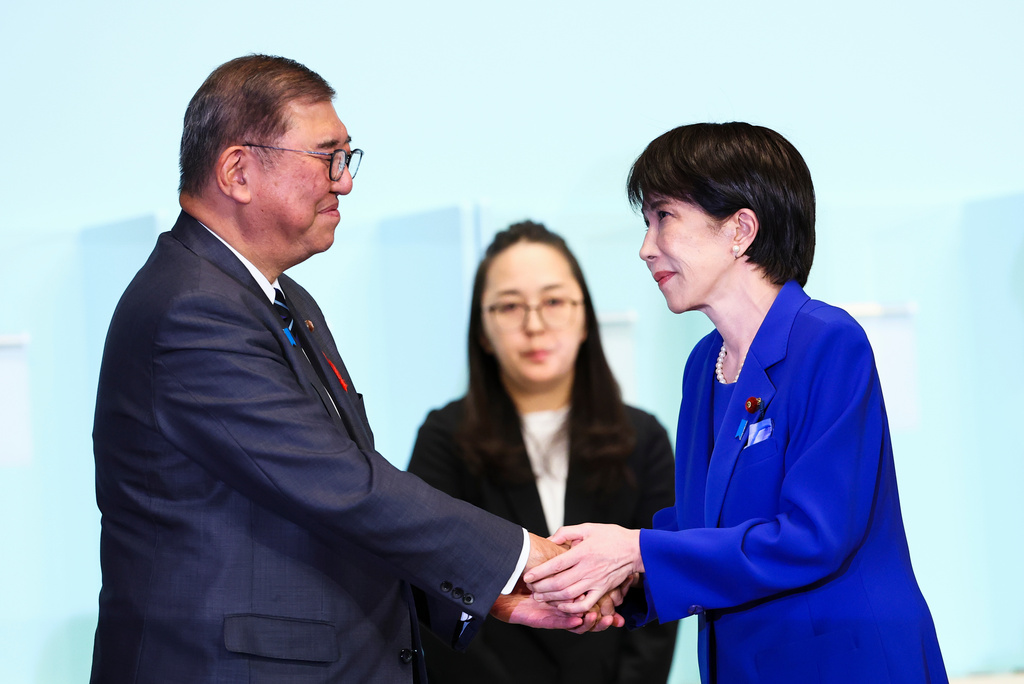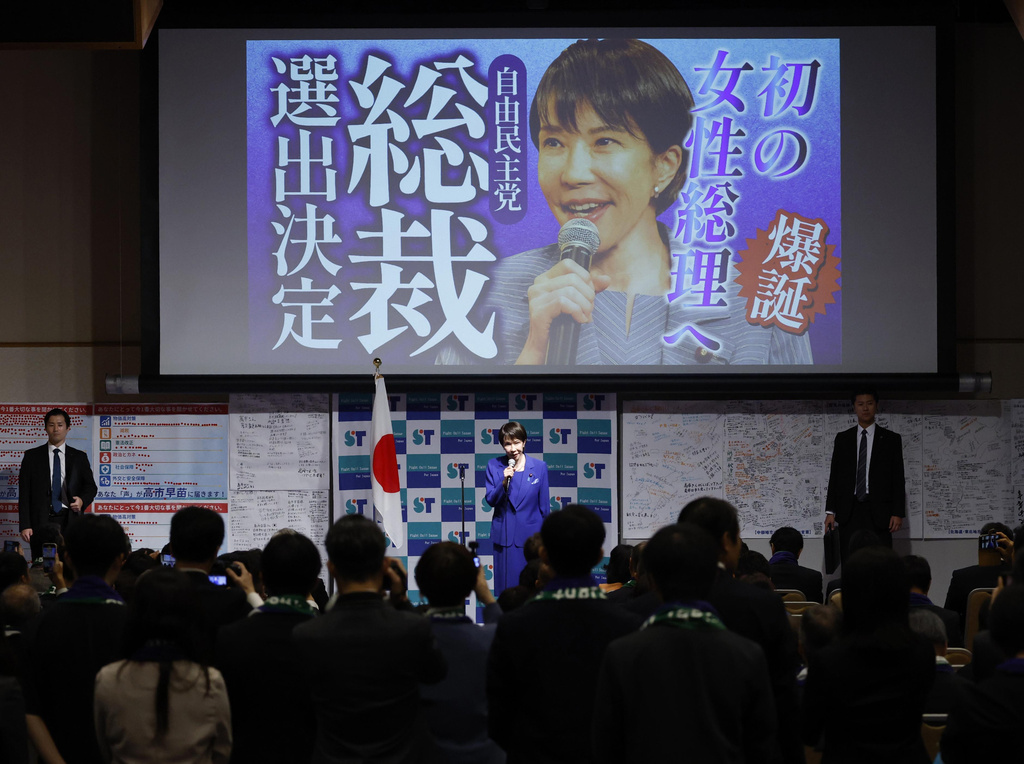
TOKYO - Japan's ruling party picked Sanae Takaichi as its head on Saturday, putting her on course to become the country's first female prime minister.
The Liberal Democratic Party, which has ruled Japan for almost all of the postwar era, elected Takaichi, 64, to regain trust from a public angered by rising prices and drawn to opposition groups promising stimulus and clampdowns on migrants.
A vote in parliament to choose a replacement for outgoing Shigeru Ishiba is expected on Oct 15. Takaichi is favored as the ruling coalition has the largest number of seats.
Inherits party in crisis
Takaichi, the only woman among the five LDP candidates, beat a challenge from the more moderate Shinjiro Koizumi, 44, who was bidding to become the youngest modern leader.
A former economic security and internal affairs minister with an expansionary fiscal agenda for the world's fourth-largest economy, Takaichi takes over a party in crisis.
Various other parties, including the expansionist Democratic Party for the People and the anti-immigration Sanseito, have been steadily luring voters, especially younger ones, away from the LDP.
The LDP and its coalition partner lost their majorities in both houses under Ishiba over the past year, triggering his resignation.
"Recently, I have heard harsh voices from across the country saying we don’t know what the LDP stands for anymore," Takaichi said in a speech before the second-round vote. "That sense of urgency drove me. I wanted to turn people’s anxieties about their daily lives and the future into hope."
ALSO READ: Japan veteran lawmaker Takaichi says she will run in LDP leadership race

Takaichi, who says her hero is Margaret Thatcher, Britain's first female prime minister, offers a starker vision for change than Koizumi and is potentially more disruptive.
An advocate of late premier Shinzo Abe's "Abenomics" strategy to boost the economy with aggressive spending and easy monetary policy, she has previously criticized the Bank of Japan's interest rate increases.
Such a spending shift could spook investors worried about one of the world's biggest debt loads.
Naoya Hasegawa, chief bond strategist at Okasan Securities in Tokyo, said Takaichi's election had weakened the chances of the BOJ raising rates this month, which markets had priced at around a 60 percent chance before the vote.
Discussed redoing Trump trade deal
Takaichi has also raised the possibility of redoing an investment deal with US President Donald Trump that lowered his punishing tariffs in return for Japanese taxpayer-backed investment.
The US ambassador to Japan, George Glass, congratulated Takaichi, posting on X that he looked forward to strengthening the Japan-US partnership "on every front".
If elected prime minister, Takaichi said she would travel overseas more regularly than her predecessor to spread the word that "Japan is Back!"
"I have thrown away my own work-life balance and I will work, work, work," Takaichi said in her victory speech.
ALSO READ: Japan PM contender Takaichi to call for income tax cuts, cash payout

Warnings for foreigners
Some of her supporters viewed her selection as a watershed in Japan's male-dominated politics, though opinion polls suggest her positions are favored more by men than women.
"The fact that a woman was chosen might be seen positively. I think it shows that Japan is truly starting to change and that message is getting across," 30-year-old company worker Misato Kikuchi said outside Tokyo's Shimbashi station.
Takaichi must also seek to blunt the rise of Sanseito, which broke into the political mainstream in a July election, appealing to voters disillusioned with the LDP.
READ MORE: Japan’s leadership hopefuls court opposition in bid for power
Echoing Sanseito's warnings about foreigners, she kicked off her first official campaign speech with an anecdote about tourists reportedly kicking sacred deer in her hometown of Nara.
Takaichi, whose mother was a police officer, promised to clamp down on rule-breaking visitors and immigrants, who have come to Japan in record numbers in recent years.
"We hope she will ... steer Japanese politics in an 'anti-globalism' direction to protect national interests and help the people regain prosperity and hope," Sanseito said in a statement.


